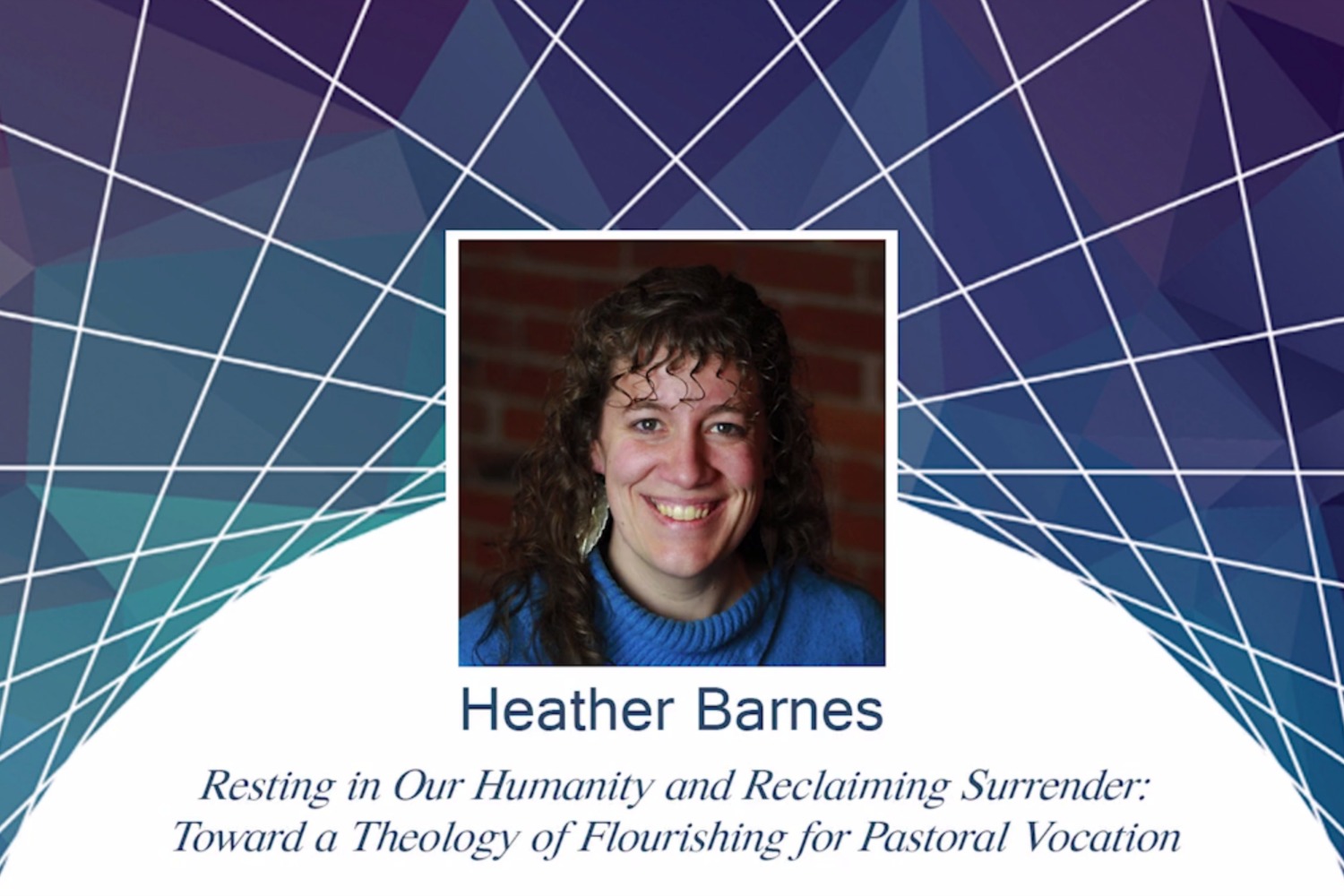Last October, we hosted the first annual Symposia: An Intersection of Conversation & Innovation, a forum in which alumni of The Seattle School presented the ongoing work they are pursuing at the intersection of text, soul, and culture. Integrative education does not end at graduation, and our alumni are proof of that. Symposia highlighted the ways that Seattle School alumni are continuing to wrestle with big questions and big dreams in theology, psychology, and culture.
This week, we’re featuring a presentation by Heather Barnes (MDiv, ‘15), “Resting in Our Humanity and Reclaiming Surrender: Toward a Theology of Flourishing for Pastoral Vocation.” Heather, who currently works as the Institutional Support Manager at The Seattle School, shares about what it might look like to foster a safe, restorative, and therapeutic space that allows pastors to flourish in their calling and vocation.
“Pastors end up getting missed in the typical forms of care for leaders, often, I think, because of the disconnects between the fields of psychology and theology, or ministry and therapy.”
Pastors are asked to both lead and serve, to wield power and surrender. In this, they are often expected to be more than human, leading to isolation and a lack of vulnerability. Heather pulls from her own experience as a pastor’s daughter and the work of Jessica Benjamin and Emmanuel Ghent, among others, to formulate the idea of surrendering into a “sacred center.”
“Hospitality toward that humanity and vocational engagement can offer pastors a place to listen more deeply to the truth of their lives, both past and present.”
Heather also looks at the story of Jesus’ haunting in the desert in Matthew 3 and the idea of surrender rooted in Philippians 2 to introduce the idea of “fullnerability”—vulnerability that leads to fullness, and surrender that fosters generativity rather than unhealthy dynamics of power and control.
“The nuance and the complexity of being in ministry as full selves in relation is not a problem or an obstacle, but is actually the gravity and grounds for pastoral flourishing.”

